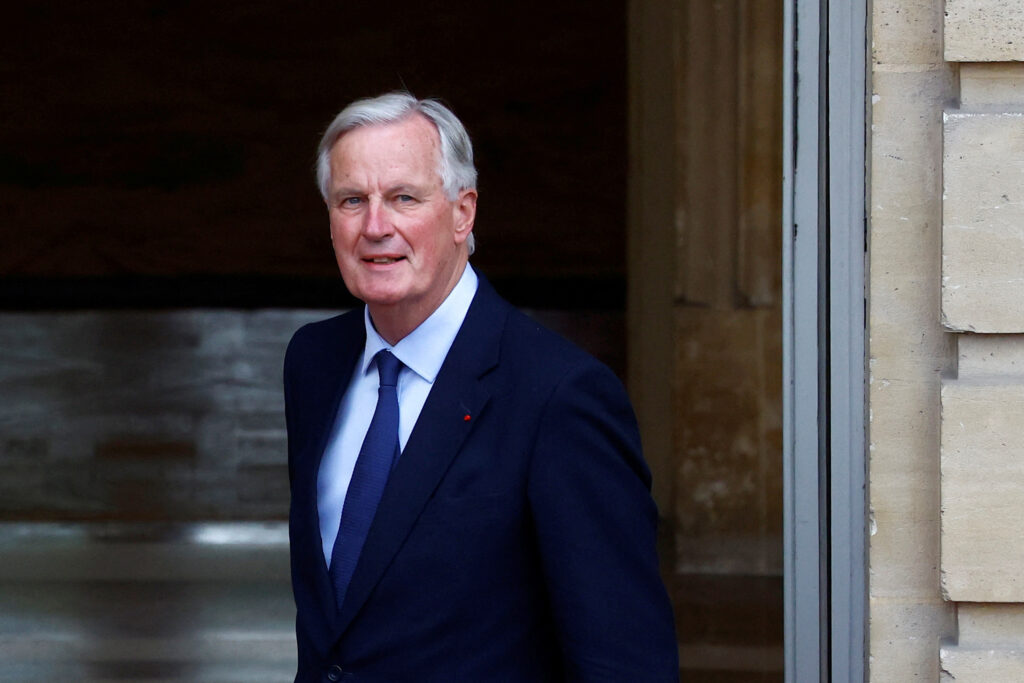Michel Barnier’s journey from Brexit negotiator to French Prime Minister

Newly appointed France's Prime Minister Michel Barnier arrives for the handover ceremony with outgoing Prime Minister Gabriel Attal at the Hotel Matignon in Paris, France, September 5, 2024. REUTERS/Sarah Meyssonnier/Pool
Michel Barnier, who has spent over 50 years in politics, is now France’s new Prime Minister. Known widely for his role as the EU’s chief Brexit negotiator, Barnier was praised for his detailed approach and ability to forge consensus during the Brexit talks.
Born in 1951 in Savoie, France, Barnier has been a dedicated conservative since his teenage years. He joined the Union for the Defense of the Republic (UDR) party as a young man and remains with its successor, the Republicans (LR). Although he didn’t attend the prestigious École Nationale d’Administration, he made history by becoming the youngest MP at age 27.
Barnier married lawyer Isabelle Altmayer in 1982, and they have three grown children. He took pride in bringing the Winter Olympics to Savoie in 1992, which he says taught him about large-scale project management.
Entering politics in 1993, Barnier served as a cabinet minister in various French governments before becoming the EU’s internal market commissioner in 2010. Although he lost a bid for European Commission President to Jean-Claude Juncker in 2014, he was appointed Brexit negotiator in 2016.
Despite some initial skepticism from French critics, Barnier was respected for his diligence and composure. He remained largely unflappable throughout the Brexit process, focusing on building EU consensus and maintaining a united front.
After Brexit, Barnier’s focus shifted to French politics. In 2021, he ran for the French presidential nomination but was unsuccessful. His subsequent call for strict anti-immigration policies and criticism of President Emmanuel Macron hinted at a more populist stance, reflecting lessons learned from Brexit.
Though Barnier’s name surfaced as a potential prime ministerial candidate after the 2024 snap election, he was officially appointed by President Macron two months later. As a pro-European conservative, Barnier is expected to navigate a challenging political landscape, balancing right-wing economic policies with the need for unity and respect in a polarized France.
In his inaugural address, Barnier acknowledged the challenges ahead and promised to be truthful, even when the message is difficult. He expressed his commitment to addressing France’s issues with humility and respect.
